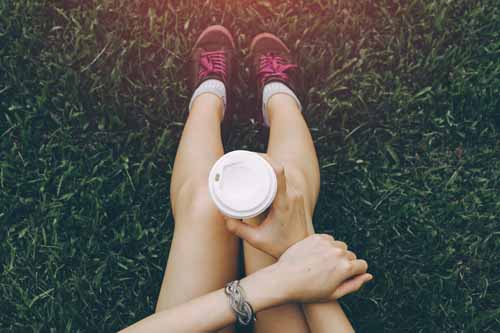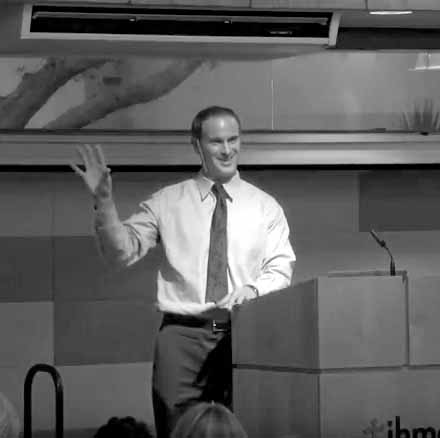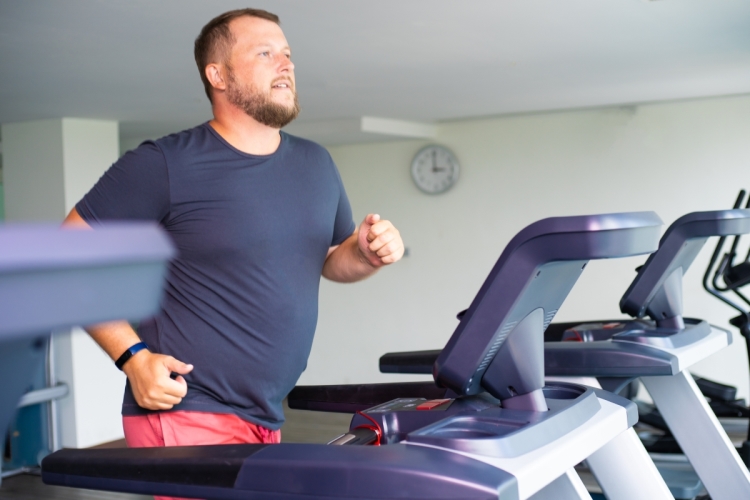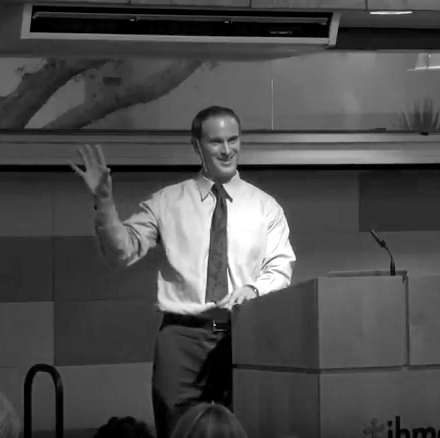Coffee Before a Workout: Helpful or Harmful?
Written by Stephen Anton PhD on September, 1st 2021

Should you drink coffee before a workout? The answer is “it depends” but for most people coffee will enhance drive and performance during the workout.
This does not necessarily mean you should drink it, however. One key factor in this decision is the time of day you train.
If you like to workout earlier in the day, there is little risk that coffee will affect your sleep that evening. This is because the half-life of coffee is approximately six hours, which means half of it is gone every six hours. So by the time you fall asleep, the majority of the caffeine in the coffee has left your system.
If your workout is typically later in the day, then the decision of whether or not to have a cup of coffee before the workout depends on a few factors, including: 1) your baseline level of arousal/ energy levels 2) how sensitive your body is to coffee, and 3) how coffee affects your sleep.
Why Does Coffee Enhance a Workout?
There are multiple ways in which coffee can enhance a workout. First, it stimulates many neuro-hormonal pathways, which and lead to increased blood flow to the heart, brain, and skeletal muscles. This results in a heightened state of mind-body arousal, which many of us have come to rely on before starting the day.
If you like to train in the morning, the coffee can help the body shift from using glucose to using fat as a source of energy. This can obviously influence the amount of fat burned during the workout, while the stimulation of neurotransmitters in the brain can also heighten drive and intensity of workouts. With increased intensity comes greater distances run and/or heavier weights lifted which lead to greater adaptation and better results.
For example, one study found that sprinters who consumed coffee or caffeine were able to sustain higher levels of performance than those who consumed a placebo. Another study found coffee arabica enhanced cognitive abilities and also reaction time.
Coffee Is More Than Just Caffeine
At this point, you may be wondering if the same results would be achieved from caffeine only. I believe the answer is an emphatic no. Caffeine is merely one component that can contribute to the performance enhancing effects of coffee.
The truth is coffee actually contains hundreds of biologically active compounds, which are distinct from caffeine, that stimulate drive, energy, and fat mobilization.
For example, coffee contains compounds called chlorogenic acids, which are major dietary polyphenols that work directly on the mitochondria (our cells’ powerhouse) of all cells in the body including the heart and brain. These compounds have been shown to increase fat oxidation in healthy males after just 5 days.
But the benefits do not stop there!
Coffee also contains additional compounds to stimulate fat burning, such as trigonelline, cafestol and kahweol. By affecting specific nutrient-sensing pathways and enzymes which play a role in cellular energy balance, coffee has multiple physiological effects that go beyond caffeine alone.
Coffee Before a Workout: Factors to Consider
Should You Have a Coffee Before Your Next Workout?
Overall, if you are low on the arousal spectrum or feeling tired but really want to get a work out in, then coffee should facilitate the workout. But the amount consumed should depend on the factors mentioned above: baseline arousal level, time of day, and potential effect on sleep.
Of course, you may also like to workout more than once a day. Personally, I almost always drink coffee before morning or midday workouts, but not before late afternoon workouts. These are typically powered by ketones, which are caffeine free.
If you are someone who experiences positive effects, then by all means, drink up. Just make sure it’s organic.
Coffee Before a Workout: Helpful or Harmful?
Written by Stephen Anton PhD on September, 1st 2021

Should you drink coffee before a workout? The answer is “it depends” but for most people coffee will enhance drive and performance during the workout.
This does not necessarily mean you should drink it, however. One key factor in this decision is the time of day you train.
If you like to workout earlier in the day, there is little risk that coffee will affect your sleep that evening. This is because the half-life of coffee is approximately six hours, which means half of it is gone every six hours. So by the time you fall asleep, the majority of the caffeine in the coffee has left your system.
If your workout is typically later in the day, then the decision of whether or not to have a cup of coffee before the workout depends on a few factors, including: 1) your baseline level of arousal/ energy levels 2) how sensitive your body is to coffee, and 3) how coffee affects your sleep.
Why Does Coffee Enhance a Workout?
There are multiple ways in which coffee can enhance a workout. First, it stimulates many neuro-hormonal pathways, which and lead to increased blood flow to the heart, brain, and skeletal muscles. This results in a heightened state of mind-body arousal, which many of us have come to rely on before starting the day.
If you like to train in the morning, the coffee can help the body shift from using glucose to using fat as a source of energy. This can obviously influence the amount of fat burned during the workout, while the stimulation of neurotransmitters in the brain can also heighten drive and intensity of workouts. With increased intensity comes greater distances run and/or heavier weights lifted which lead to greater adaptation and better results.
For example, one study found that sprinters who consumed coffee or caffeine were able to sustain higher levels of performance than those who consumed a placebo. Another study found coffee arabica enhanced cognitive abilities and also reaction time.
Coffee Is More Than Just Caffeine
At this point, you may be wondering if the same results would be achieved from caffeine only. I believe the answer is an emphatic no. Caffeine is merely one component that can contribute to the performance enhancing effects of coffee.
The truth is coffee actually contains hundreds of biologically active compounds, which are distinct from caffeine, that stimulate drive, energy, and fat mobilization.
For example, coffee contains compounds called chlorogenic acids, which are major dietary polyphenols that work directly on the mitochondria (our cells’ powerhouse) of all cells in the body including the heart and brain. These compounds have been shown to increase fat oxidation in healthy males after just 5 days.
But the benefits do not stop there!
Coffee also contains additional compounds to stimulate fat burning, such as trigonelline, cafestol and kahweol. By affecting specific nutrient-sensing pathways and enzymes which play a role in cellular energy balance, coffee has multiple physiological effects that go beyond caffeine alone.
Coffee Before a Workout: Factors to Consider
Should You Have a Coffee Before Your Next Workout?
Overall, if you are low on the arousal spectrum or feeling tired but really want to get a work out in, then coffee should facilitate the workout. But the amount consumed should depend on the factors mentioned above: baseline arousal level, time of day, and potential effect on sleep.
Of course, you may also like to workout more than once a day. Personally, I almost always drink coffee before morning or midday workouts, but not before late afternoon workouts. These are typically powered by ketones, which are caffeine free.
If you are someone who experiences positive effects, then by all means, drink up. Just make sure it’s organic.

Get the Beginner’s Guide to Intermittent Fasting
Take advantage of this FREE PDF and learn the basics of intermittent fasting.

Get the Beginner’s Guide to Intermittent Fasting
Take advantage of this 100% free PDF and learn the basics of intermittent fasting.

Get the Beginner’s Guide to Intermittent Fasting
Take advantage of this FREE PDF and learn the basics of intermittent fasting.









